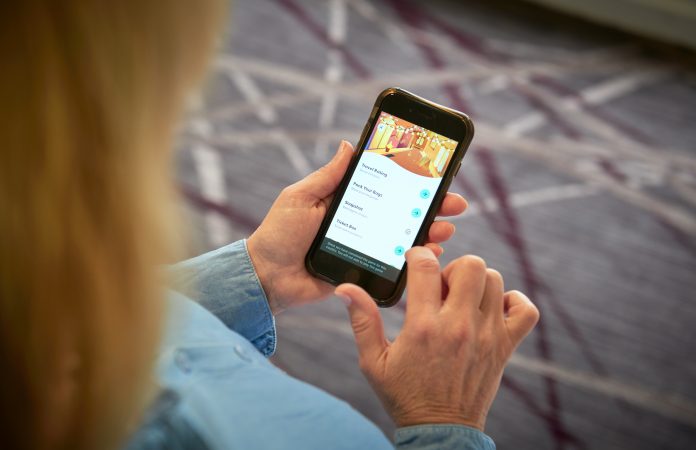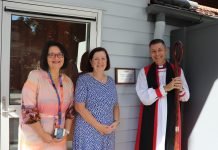In this guest post, Dementia Australia’s Chair Professor Graeme Samuel AC shares some of what prompted the development of the BrainTrack app – released earlier today!
Have you ever wondered if forgetting where you put your keys is just a normal part of ageing? I am sure this occurs for all of us – and it can prompt second-guessing and, for some, it plants the seeds of self-doubt.
This week Dementia Australia launched BrainTrack – a free app designed to support anyone who might suspect there are changes in their cognition to self-monitor and discuss the results with their doctor.
The beauty of the app is that it doubles as a source of brain health information for everyone, so it is a valuable tool regardless of whether you have concerns or are just wanting to find out more about brain health. For many users, BrainTrack will offer reassurance as well as useful tips for maintaining brain health.
While BrainTrack does not replace the need for formal cognitive assessment, it has been developed to support the individual and the diagnosing health professional process.
It empowers users to measure and track their brain function over time in an easy and private way, and potentially even pick up on cognitive concerns the user may not be aware of themselves.
Users are prompted to log in monthly and undertake a series of fun, travel-themed games based on validated cognitive tests, to proactively track and monitor their cognition over time. A confidential, data-driven report can then be generated within the app using the game results. This report can then easily be emailed as a pdf to the user and used to start a discussion with their GP regarding their cognition.
Why is BrainTrack needed?
There are almost half a million Australians living with dementia – which is projected to increase to 1.1 million people by 2058.
Just like with other chronic diseases such as heart disease or diabetes, it is vital for people experiencing early changes in cognition to access information, support and services as early as possible.
GPs and other healthcare professions play a vital role in the diagnosis process, and I am calling on all, across the sector, and to all healthcare leaders and peak bodies to lead the way – to download BrainTrack for themselves so they can understand its purpose and encourage their patients to download it too.
If dementia is diagnosed when changes in cognition are starting to occur, then steps can be taken that can make a life-changing difference that can help individuals to enhance their quality of life and plan for the future.
An early diagnosis means people with dementia can access vital support and resources sooner. GPs and specialists can refer patients to Dementia Australia, which is a critical first step on the pathway to diagnosis and support. Dementia Australia is the central entry point in the provision of pre and post-diagnostic support to people living with mild cognitive impairment and dementia, their families and carers. We also support people with concerns about cognitive changes to help them access suitable diagnostic services. Significantly we are also able to proactively contact people who have been newly diagnosed, with consent through their doctor, to offer information and support about their diagnosis and access to an extensive range of post-diagnostic support programs.
Referring to allied health is another key step in the process.
Research indicates that the use of allied health services can slow the progression of cognitive and functional decline, improve quality of life and delay or prevent admission to residential aged care.
Allied health professionals assess physical and cognitive issues and provide interventions to support the maintenance of current strengths and capacities, improve skill acquisition and promote recovery, enablement and rehabilitation.
There is a clear evidence base demonstrating the benefits of a range of allied health services for people living with dementia. In adopting an enablement and wellness approach, allied health services can focus on maintaining current strengths and abilities, provide rehabilitative support following acute health events, compensate for declining function and promote well-being and independence.
The right support at the right time can enable people with dementia to maintain their independence and functional capacity for as long as possible.
BrainTrack has been developed to assist individuals and healthcare professionals. We believe that the more healthcare professionals know and understand dementia and how Dementia Australia’s support and services, including post-diagnostic services, can support their patients, the better the system and healthcare experience will be for all of us.
BrainTrack was funded by the Australian Government and is available for download for free now through the Apple app store or Google Play.










